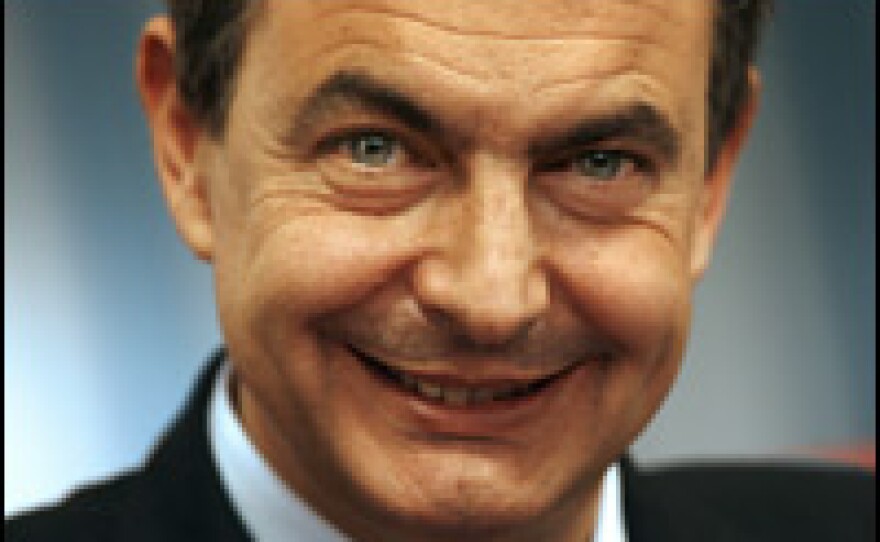
Four years ago today, bombings rocked Madrid's commuter train line just days before the national election. Journalist Jerome Socolovsky explains what's changed and what hasn't as the country welcomes the re-election of Spanish Prime Minister Jose Luis Rodriguez Zapatero, the Socialist politician who won his latest bid by a statistical fraction.
Zapatero's first victory was defined by the March 11th, 2004 blasts that killed 191 people and injured 1800 others. Socolovsky says many people concluded the Socialist candidate won that contest because voters wanted change. He says voters were seen as blaming the conservative government for Spain's participation in Iraq and its dismissal of evidence that radical Islamists, not Basque militants, were responsible for the bombs.
Socolovsky says Zapatero's election gave him "not a free hand" but "quite a bit of latitude" to do what he wanted with the country. "He took Spain on a sharp left hand turn," Socolovsky says, pushing through legislation that would have been unthinkable before: provisions for gay marriage, easier paths to divorce, access to abortion, massive amnesty deals for undocumented workers. Perhaps most shockingly, the new leader clashed with the Catholic Church and threatened to cut its funding.
But Socolovsky says that while Spain remains 90 percent Catholic, the church's role in daily life is becoming more and more ceremonial. Most Spaniards do get married in church, just as most baptize their children. But church attendance is among the lowest in Europe. When Zapatero legalized gay marriage, Socolovsky says, this supposedly Catholic country was in favor by as much as 70 percent, which seemed to indicate that in effect, church teachings were no longer at the core of Spain's governing ideals.
Now that Zapatero has been handed, if narrowly, an additional four years, does he have the support to continue to move forward? The economy is slowing down, Socolovsky says, so the leader faces some tough years ahead. In order to push legislation through a divided parliament, Socolovsky says the Socialist will need support from some of the smaller parties, such as those in the Basqe and Catalonia regions. It won't be without consequences, he says. "They're pushing for things that raise hackles on the right," he says. "Basque leaders want a referendum on self rule." In exchange for their support, he says Zapatero will have to listen to their demands — which could come back to haunt him next year.
Going back to the bombings, what does it mean that terrorism may have brought the Socialists to power? Party leaders play that argument down, Socolovsky says. "They say there was a large turnout in that election," he says. "That large elections tend to favor the socialists, because their base is seen as more apathetic."
In fact, Socolovsky says, the right was doomed long before the bombings. A series of blunders included the sinking of a big oil tanker. "They had said it was no big deal and tried to tow it out to sea," Socolovsky says. "It became the biggest environmental disaster in this country's history." Another factor was Iraq. Spain was 90 percent against the war and was the site of huge war demonstrations — which were led by Zapatero. "The anger, if anything, tipped the balance," he says. "They went out and voted in what can be seen as a protest vote."
In the short term, will Zapatero's election and his ability — or inability — to continue to move Spain forward have any immediate impact for the world or the U.S.? "No," Socolovsky says, "Spain will pretty much stay the same." For now — before the Basque issue flames up and in advance of other grim economic news, Zapatero can enjoy his past success and focus on the future.
Copyright 2022 NPR. To see more, visit https://www.npr.org. 9(MDAzMjM2NDYzMDEyMzc1Njk5NjAxNzY3OQ001))





